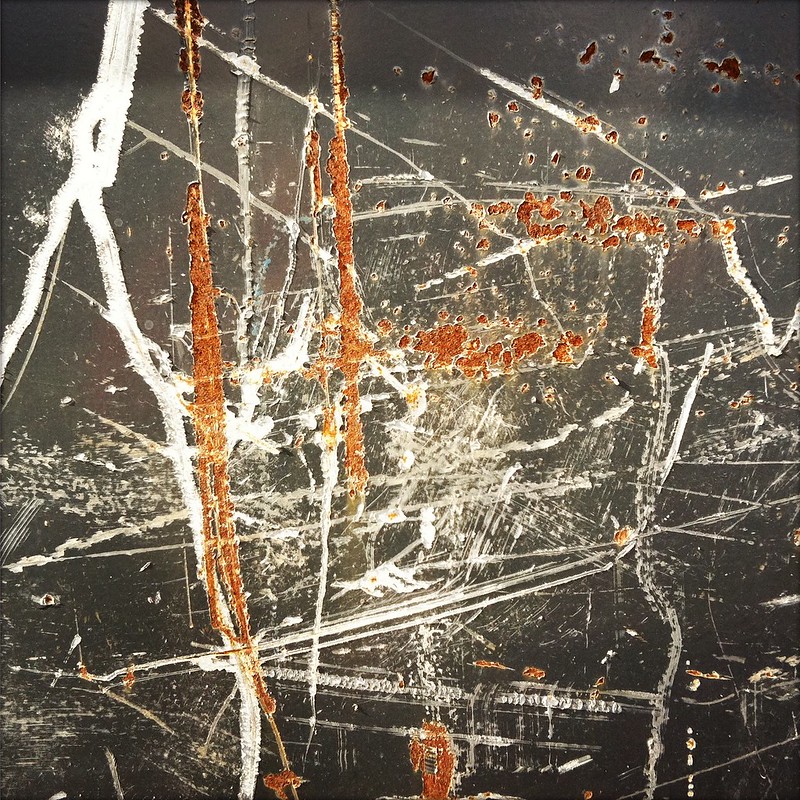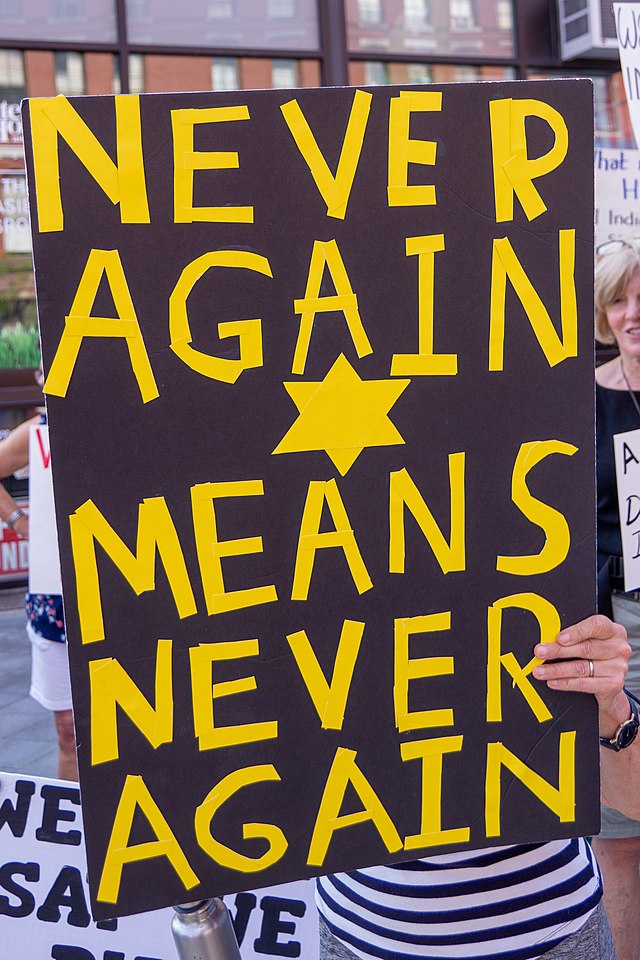“Royalty-free stock illustration ID: 1938114082″ by Naeblys is licensed under Shutterstock.com
Catastrophe, Reverbed
What happens when a catastrophe is over?1 When those who are still alive go home or against all odds make a new home?
Since the 1970s, a consensus has emerged among scholars working in numerous fields in the western academy—the impact of catastrophic traumas like genocide and terrorist attacks does not just fade away. Not only do traumatic symptoms and other effects linger in the lives of survivors, but they have also been shown to jump the generational gap and show up in the children of survivors.
Some scholars argue that prolonged exposure to post-traumatic stress symptoms during a child’s development explains this intergenerational phenomenon. Other scholars focus on how the haunting stories that children repeatedly heard their parents share—or conspicuously not share—impacted them. Finally, still other scholars trace this phenomenon to biology. Most recently, Dr. Rachel Yehuda’s work postulating the epigenetic transfer of trauma symptoms has grabbed headlines.
Moral Agency among Children of Holocaust Survivors
Regardless of the cause, what concerns me here is how these aftereffects amount to constraints for some children of survivors, constraints that impede their ability to pursue their own moral goods and flourishing.
In this article, I invite you to spend some time with one child of survivors: Jewish-British journalist Anne Karpf whose mother survived Auschwitz and whose father survived Soviet camps and the Polish army.
Karpf’s life troubles an assumption implicit in much of the theory about agency, namely that moral agency needs to be rational and registered at the cognitive—not somatic—level.
Karpf’s life has much to teach those of us who study constraint, morality, and agency. Two things especially strike me. First, her life demonstrates how genuine moral goods can constrain each other, at least under conditions of trauma. Second and equally remarkable, Karpf appears to manifest her moral agency somatically and not merely cognitively. If this observation is correct, Karpf’s life troubles an assumption implicit in much of the theory about agency, namely that moral agency needs to be rational and that intentions need to be registered at the cognitive level. My engagement with Karpf, therefore, leads me to propose the following definition of moral agency under constraint:
“Moral agency under constraint is cognitively or somatically claiming creative power to act according to a perceived good under conditions that thwart its realization.”2
Karpf tells her story in The War After: Living with the Holocaust. This stirring and disturbing memoir was first published in the mid-1990s, a decade in which many children of Holocaust survivors—now adults with aging parents—published memoirs, crafted films and art, or released scholarship grappling with their experiences.3 A common trope that we find in this body of work is the creator’s realization that their “years of problems weren’t necessarily the result of personal pathology” but rather understandable reactions typical in people who grew up in their circumstances.4 Relatedly, many second-generation members also document how it dawned on them that their suffering is legitimate and worthy of treatment even though it doesn’t rise to the level of life in a concentration camp, which many had internalized as the standard of suffering.
Moral Goods in Conflict
For Karpf, the challenge of attaining and balancing two common—mundane even—moral goods was one tortuous aspect of her experience. These goods were her desire to connect to and honor her parents and Jewish ancestors and her desire to create an independent self and craft a future of her own choice. It was almost impossible for Karpf to attain and balance these goods because her and her parents’ symptoms of trauma mixed with larger questions of how to ethically relate to the Holocaust, made them seem incompatible. The pursuit of one, constrained the other.
Let’s start with an obvious ethical constraint impeding their compatibility. Karpf’s birth was heavily symbolic. Her parents lost almost all their extended family in the Holocaust, an event that aimed to annihilate European Jewry, and, like many of their peers, they had children as soon as possible after the war. Karpf had to reckon, therefore, with the ethically fraught feeling that she was in some senses a replacement for dead relatives and that she might represent for her parents meaning after meaningless, hope for the future, and even the continuance of the Jewish race. Karpf documents in her memoir how this led to her feeling the need to deny all her negative emotions and experiences growing up, submerging them beneath a coat of sugary positivity. It was her obligation, she writes, to “tip the family’s scales towards happiness.”5 This burden is also why it was wrenchingly difficult for Karpf to marry the Gentile whom she fell in love with as an adult. Karpf’s desire to live into a future of her own choice meant that she had to bear her mother’s cutting accusation that she “was doing what Hitler hadn’t managed to – finishing off the Jewish race.”6 Rather than connecting to and honoring her parents and ancestry, therefore, she ended up hurting them and causing them dishonor, the last things that she wanted to do.
Karpf had to reckon with the ethically fraught feeling that she was in some senses a replacement for dead relatives and that she represented for her parents meaning after meaninglessness, hope for the future, and even the continuance of the Jewish race.

“I would gladly have taken over some of my parents’ bodily functions – eaten for them, breathed for them.”
It was also almost impossible for Karpf to balance her goods because of the codependent nature of her relationship with her parents. Karpf writes that she viewed herself as basically “coterminous,” “undifferentiated,” and “unicellular” with them.7 This makes sense when we remember that for many people who experienced the Holocaust “separation had become symbolically equivalent to death.”8 So close was Karpf with her parents that she states, “I would gladly have taken over some of my parents’ bodily functions – eaten for them, breathed for them.”9
Just as Karpf sought connection at the bodily level, she also registered relational distress there. Most dramatically, she suffered from recurrent bouts of eczema. There, on the skin that separated Karpf from not Karpf, beads of trapped moisture would appear along with an urge to scratch herself raw. And Karpf did indeed scratch her skin until blood and pus ran many times, usually whenever she took a step towards differentiating herself from her parents in some way—like when she moved in with her boyfriend.
Moral Agency Embodied
Here is where I want to make a controversial claim: Karpf’s eczema and scratching are just as much forms of moral agency as the conscious steps she took to bring her goods into balance—e.g., pursuing therapy, co-founding a group for British children of Holocaust survivors, and writing a memoir.10 I came to this conclusion because of Karpf’s own words. She calls her eczema “a reliable bugle of distress” and a means by which her “outlawed feelings found their own egress.”11 In other words, through her eczema, Karpf’s body could communicate that something was wrong and make subconscious efforts to cope with the problem it identified. Both these subconscious actions presume a good and are therefore moral, at least by an anthropological definition that roots morality in the human tendency to conceive of goods and be evaluative. In this case, the goods they presume are the two we’ve been discussing throughout.

My claim does not mean that Karpf’s eczema was not also a harmful trauma symptom, however. As a field, we ethicists must continue to break with binaries, especially simplistic mind/body and good/bad distinctions. Just as a cognitive process can be flawed or painful and still aimed at a good, so can subconscious bodily processes. Humans rarely do anything perfectly. Is this not doubly true when it comes to living morally in a post-catastrophe world riddled with trauma and fraught ethical discourses? Once we begin to see the moral agency latent in things that look like trauma symptoms, perhaps we can also begin to see it in healthier things like sleeping and exercise.12
We ethicists must continue to break with binaries, especially simplistic mind/body and good/bad distinctions.
Children of other Catastrophes
I have chosen to focus here on what a child of Holocaust survivors can teach us about constraints, morality, and agency for a simple reason. The children of Holocaust survivors were the first to provide modern western society with detailed, quantifiable insight into the intergenerational effects of catastrophe. They also contributed to the development of several fields like Memory Studies and Trauma Studies under whose auspices other catastrophes are now studied.

Of course, we should not imagine that the children of all survivors of catastrophe have the same constraints or the same goods. The Holocaust inhabits a unique place within western history and undoubtedly led to some distinct challenges for those whose parents lived through it. However, this is not to say, as some have done, that the Holocaust is so unique that it can never profitably be compared with any other event. Like field leaders Marianne Hirsch and Michael Rothberg argue, careful comparative work is warranted. Only then can a moral directive like “Never Again!” make sense.13 And only then will we see the full implications of the work I have done here. I welcome you, reader, to join me in doing this comparative work on moral agency after catastrophe.
Want to know more about this author? Click here!
Footnotes
Footnotes
- I am using Merriam Webster’s definition of catastrophe: “a momentous tragic event ranging from extreme misfortune to utter overthrow or ruin.” “Catastrophe.” Merriam-Webster.com Dictionary, Merriam-Webster, https://www.merriam-webster.com/dictionary/catastrophe. Accessed 1 Dec. 2021. One reason I use this term is that it was one of the first terms used for the Holocaust before the term “Holocaust” gained widespread use close to two decades after the event. “Catastrophe” was popularized by historian Salo Baron. For the history of this linguistic evolution and for an explanation of why a Greek term was eventually agreed upon to signify this tragedy see Deborah Lipstadt, Holocaust: An American Understanding, (New Brunswick: Rutgers University Press, 2016), 6-13. The other term commonly used today is “Shoah,” a biblical Hebrew word for “complete destruction or devastation.” Lipstadt, Holocaust, 9.
- This definition is a modified version of Ellen Ott Marshall’s. See Ellen Ott Marshall, “Moral Agency under Constraint,” Society of Christian Ethics, January 8, 2021. Marshall’s definition lacks the words “cognitively” or “somatically.”
- Recently, the grandchildren of Holocaust survivors have also begun exploring the Holocaust’s impact on their lives in public-facing work. See, for example, the second season of Natasha Lyonne’s tragi-comic Netflix series Russian Doll in which Lyonne’s character finds herself pulled back in time into the bodies and minds of both her Holocaust surviving grandmother and her mentally ill mother.
- Anne Karpf, The War After: Living with the Holocaust (London: Heinemann, 1996), 220.
- Karpf, The War After, 39.
- Her mother did eventually accept Karpf’s Gentile husband. Karpf, The War After, 97.
- Karpf, The War After, 102, 104.
- Karpf, The War After, 44
- Karpf, The War After, 53.
- On the closing pages of her memoir, we read that Karpf succeeded in bringing her goods into balance. She exclaims in wonder “I can’t believe how much connectedness and separateness I’ve attained.”
- Karpf, The War After, 10.
- The Nap Ministry founded by Tricia Hersey might be an example of the former.
- See Marianne Hirsch, The Generation of Postmemory: Writing and Visual Culture After the Holocaust (New York: Columbia University Press, 2012) and Michael Rothberg, Multidirectional Memory: Remembering the Holocaust in the Age of Decolonization (Stanford: Stanford University Press, 2009).
